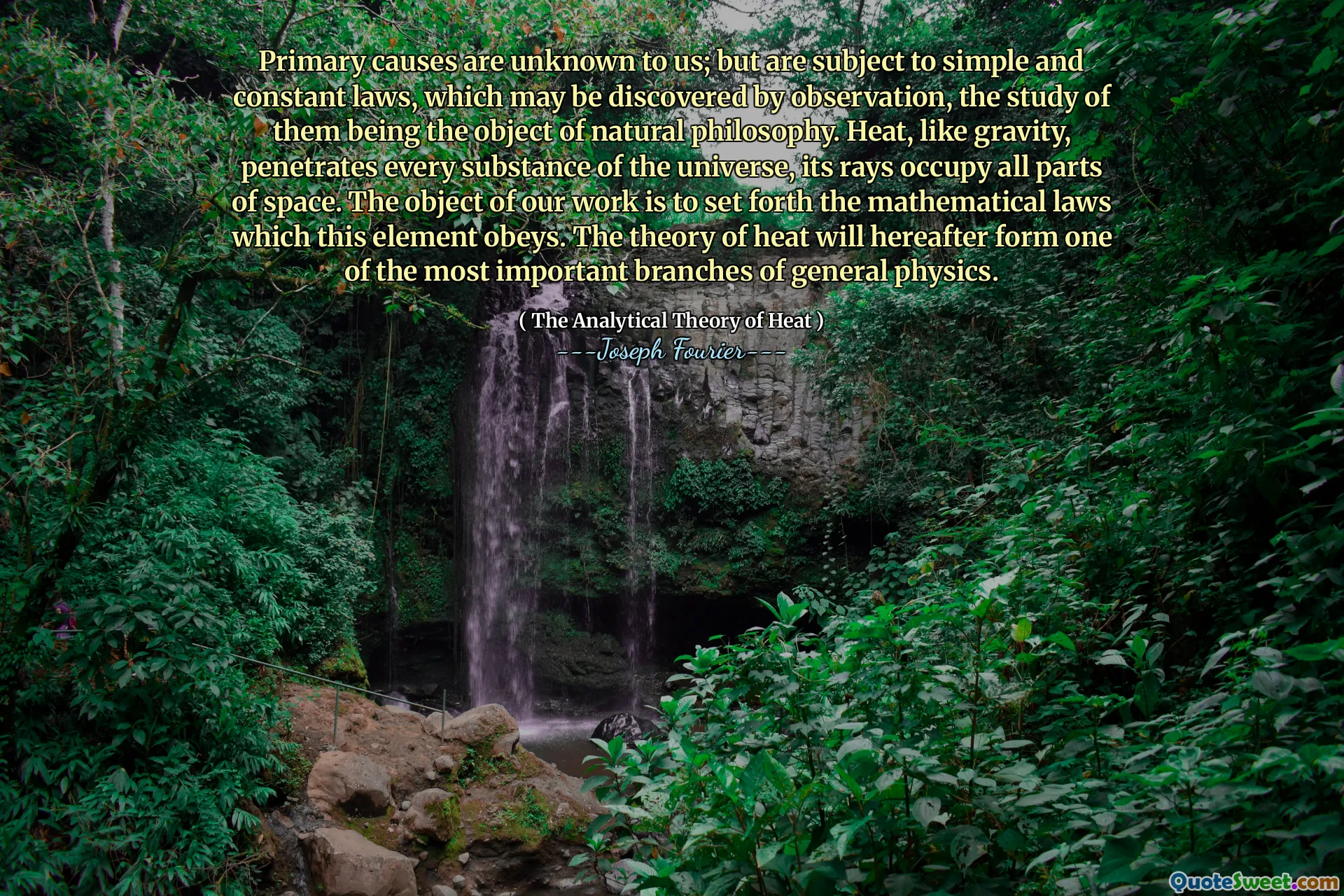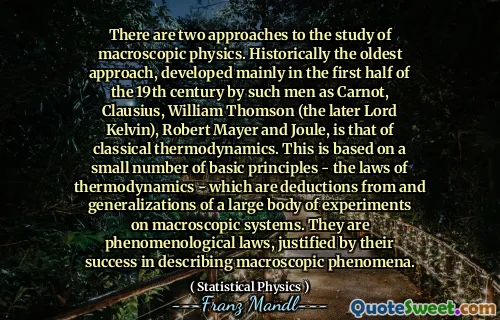
Primary causes are unknown to us; but are subject to simple and constant laws, which may be discovered by observation, the study of them being the object of natural philosophy. Heat, like gravity, penetrates every substance of the universe, its rays occupy all parts of space. The object of our work is to set forth the mathematical laws which this element obeys. The theory of heat will hereafter form one of the most important branches of general physics.
[Let's explore the profound implications of Fourier's quote, which highlights the fundamental nature of heat as a universal, all-pervasive phenomenon. Fourier emphasizes that while we may not understand the primordial causes behind heat and other natural phenomena, we can uncover their consistent laws through systematic observation. This perspective embodies the scientific approach—assuming that even phenomena as widespread as heat or gravity are governed by principles that can be discerned, modeled, and predicted through mathematical laws. Fourier's recognition that heat infiltrates every material and occupies all space underscores its omnipresence, setting the stage for a systematic, quantitative study of thermal phenomena. This notion was revolutionary in the 19th century, as it paved the way for thermodynamics—an essential branch of physics—allowing scientists to not only understand heat transfer but also to apply this knowledge in everything from engine efficiency to meteorology. The emphasis on mathematical description reinforces the importance of precision and quantification in science, encouraging a shift from philosophical speculation to empirical and analytical methods. Fourier's work essentially bridged the gap between observation and theory, transforming an intuitive understanding of heat into a rigorous scientific discipline. His insights boiled down to the idea that nature's laws are discoverable and universal, inspiring generations of scientists to unravel the intricacies of the physical universe through careful measurement, experimentation, and mathematical formulation. This approach remains foundational in scientific inquiry—highlighting that nature’s secrets are accessible to methodical investigation, regardless of the complexity or scale of the phenomena—ultimately contributing to the progress of human knowledge and technological innovation.]


